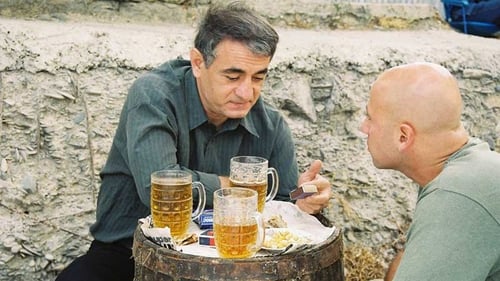
The film takes place in the Azerbaijani capital of Baku at the end of the 1980s. At this time, the Soviet Union was starting to fall apart, and with this came the start of a number of ethnic conflicts. Fariz and his family move into a Baku apartment block from war-torn Nagorno-Karabakh. Fariz's relations with his new neighbors are strained by his accusations that it was people like them who failed to support the Azeris in their conflict with ethnic Armenians. The only one who stands up to him is Alik, who acts as peacemaker between him and the older inhabitants of the building. Alik has no reservations about brandishing his gun in order to keep the peace. One day, the apartment managers want to evict a number of musicians who have been squatting in the basement. Alik gets involved, but soon discovers the situation is more complicated that he first believed.

Villager
During the late 1980s and early 1990s the Armenian minority in Nagorono-Karabakh attempted to break away from Azerbaijan, one of the former Soviet republics. Overnight these former neighbors became enemies, and simple village folk were suddenly made hostages in a complex power game. One of the Azerbaijani villages right on the border is home to the family of the peasant farmer Kerim, who has just been captured by the Armenians. The village council decides to take an Armenian in order to arrange a hostage exchange. They imprison the wounded man in the barn next to Kerim's house, where his wife and three children desperately await the husband's return. The captive from the other side of the border finds himself in exactly the same situation - he, too, has three children, he finds it hard to scrape a living together, he has never done anything to harm anyone and, like Kerim, he just wants to go back home. But life in Karabakh is far more complex now. Blood calls for blood.

